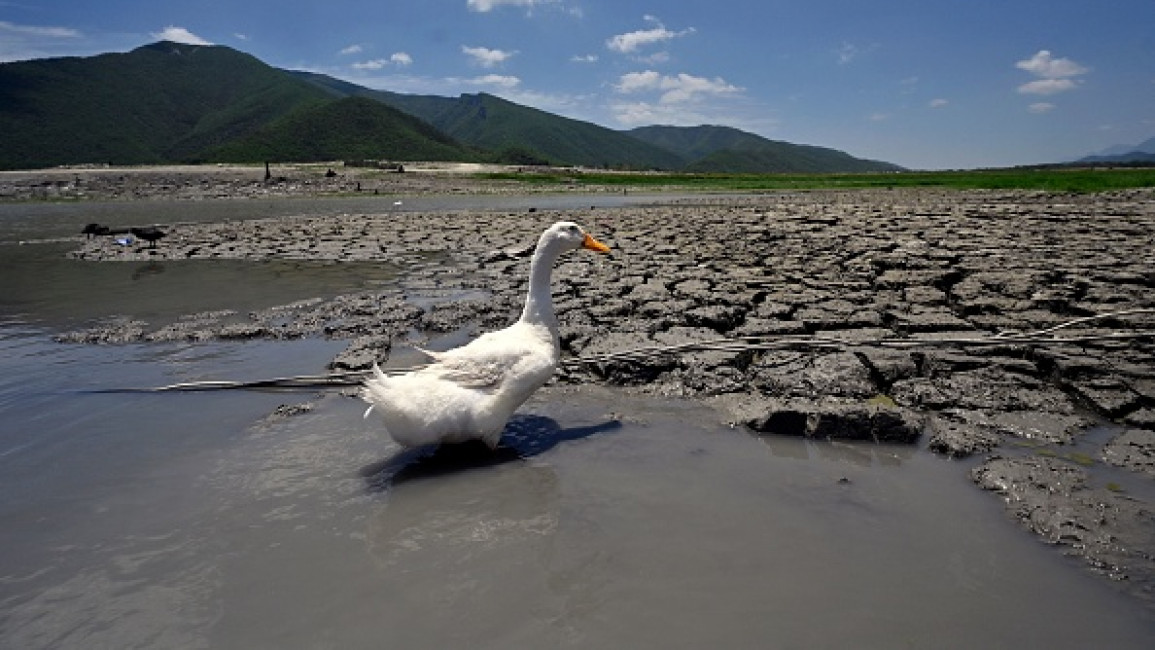'Desperate for water': drought hits Mexican industrial powerhouse
Maria Celia Navarro smiles wistfully as she remembers the now-unthinkable luxury of taking a shower in her home before a water shortage struck one of Mexico's wealthiest cities.
Nestled in mountains a few hours' drive from the US border, industrial powerhouse Monterrey boasts living standards that many Mexicans could only dream of.
Residents of the northern city, whose metropolitan area is home to around five million people, have in general been spared the chronic lack of services that plagues many poorer areas of the country.
But for several weeks, a heat wave and dearth of rain means that Monterrey has had running water for only a few hours a day.
In disadvantaged neighborhoods perched on hills, it has been more than 50 days since some residents last saw a drop from their faucets.
"I'm desperate for water," said Navarro.
The 73-year-old, who is in frail health, said she feels "very depressed" sheltering from the sun in her small, poor ventilated house in the municipality of Garcia.
Even the city's elderly residents say they cannot remember a time when Monterrey's households had to cope with so little water.
Despite being a modern and thriving city, home to transnational firms, few houses are equipped with water tanks, which are common in other large cities including the capital Mexico City.
"They weren't needed," said municipal councilor Javier Torres, who supervises tanker trucks bringing water to Garcia, where whole families run outside with buckets to collect the precious liquid.
Many residents of Monterrey -- capital of the prosperous state of Nuevo Leon -- fill improvised storage containers in their homes, unable to afford a large tank due to skyrocketing prices.
A semi-arid climate means that each summer, when the average temperature hits around 38 degrees Celsius (100 degrees Fahrenheit), authorities have to monitor the level of several reservoirs supplying the city.
The water in one had dwindled to less than one percent of its capacity by the end of June, while another was at seven percent and a third at 44 percent, according to the national water authority.
Samuel Garcia, Nuevo Leon's 34-year-old state governor, has said a pipeline leak is partly to blame, adding that he "is not Tlaloc" -- referring to the Aztec rain god.
Cloud seeding -- a technique used elsewhere in Mexico to try to provoke rain by dispersing chemicals in the sky -- is one of his proposals to tackle the problem.
Monterrey faces an uncertain outlook due to 15 months of scant rainfall and insufficient management of water resources, according to expert Antonio Hernandez, who closely follows the city's environmental woes.
Farmers and a booming industrial sector dominated by production of soft drinks, beer, steel and cement have been subject to few restrictions despite the drought, he said.
Radical measures such as halting commercial activities "seem unthinkable to me at the moment," Hernandez said.
Last week, after negotiations with federal authorities, businesses and farmers agreed to take steps to ease the shortage.
"Companies have stopped operating for a few days a week to save water," Torres said.
"There are businesses that have sent us water to be able to supply some neighborhoods," the councilor said.
On Monterrey's outskirts, the reservoir La Boca looks as empty as a dozen restaurants located on its recently renovated promenade.
A cracking lakebed and boats left high and dry by the receding waters now greet visitors.
"We'd barely caught our breath after the pandemic and then the drought began," said 26-year-old waiter Adrian Luna, who fears that the boat trips and horseback riding will become a distant memory.




![Bahrain [getty] Bahrain [getty]](/sites/default/files/styles/image_330x185/public/media/images/5F28B59A-942B-4B6A-A5A8-09D476D1E68D.jpg?h=d1cb525d&itok=NJNXWh5z)